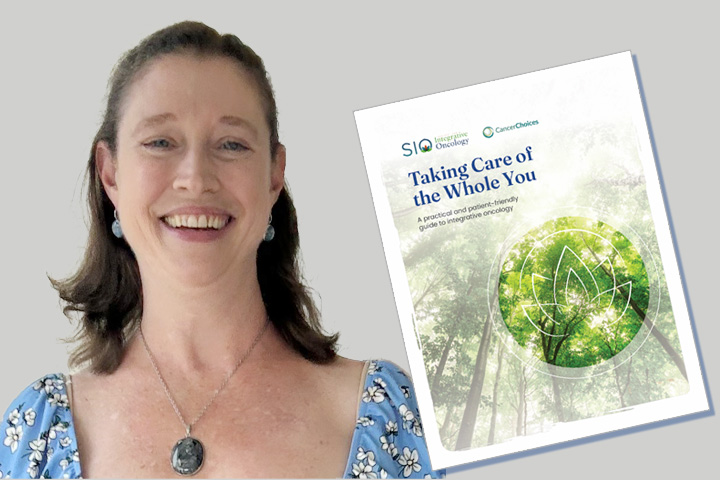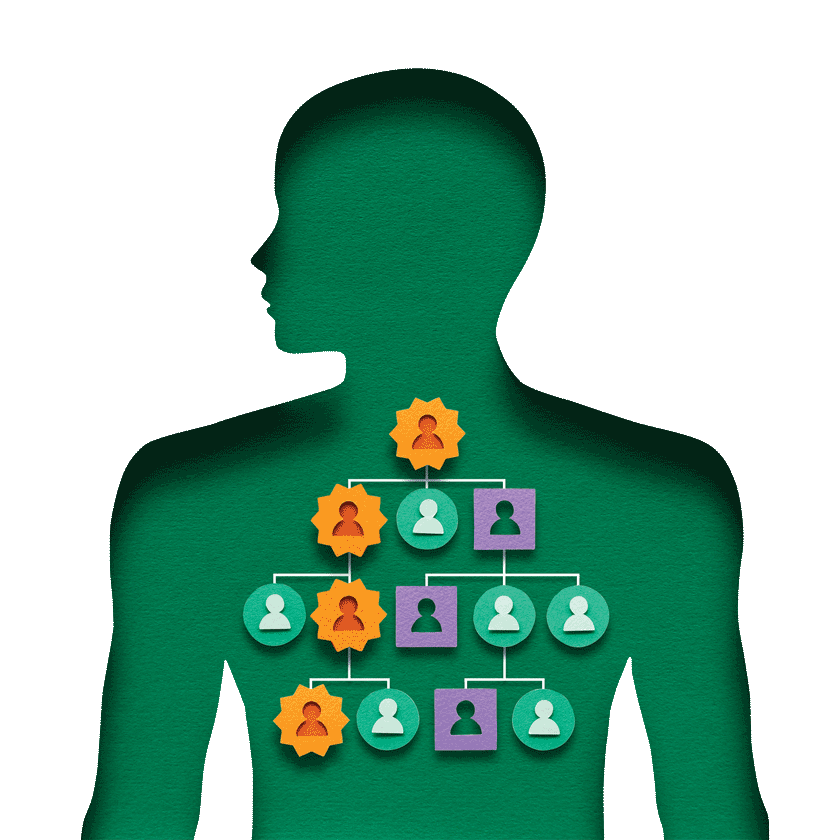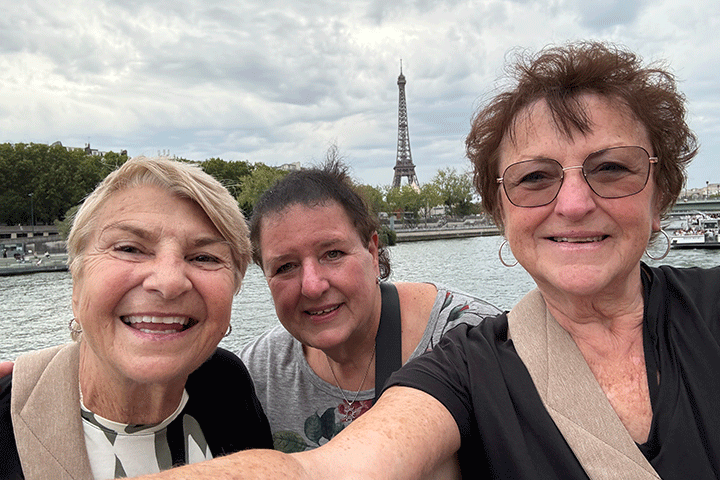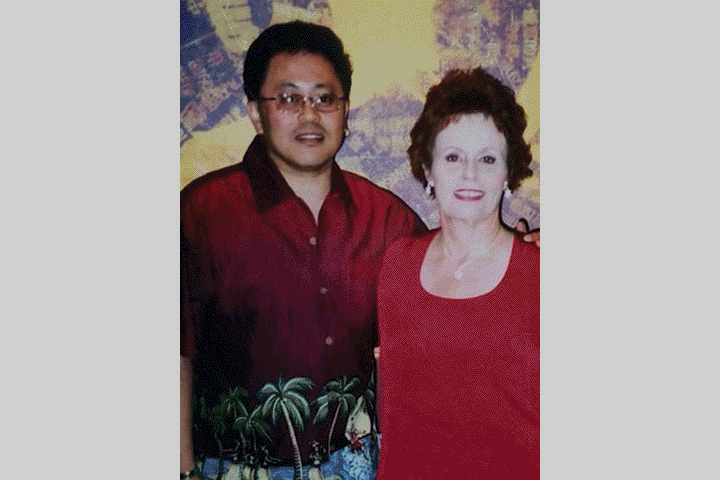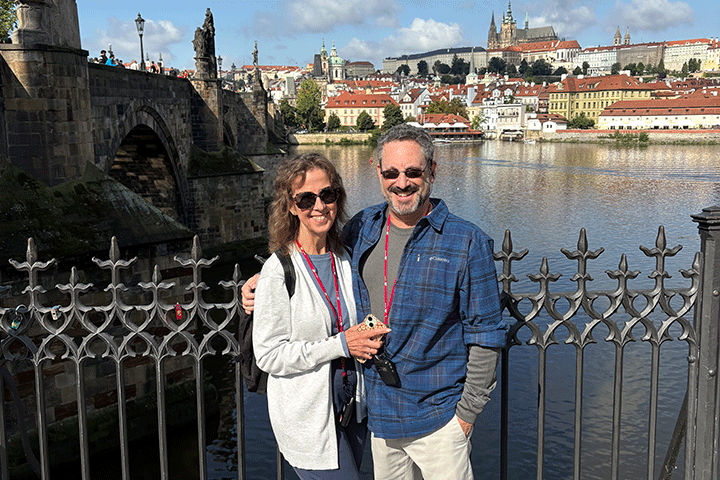Genetic Testing Guided My Treatment Plan
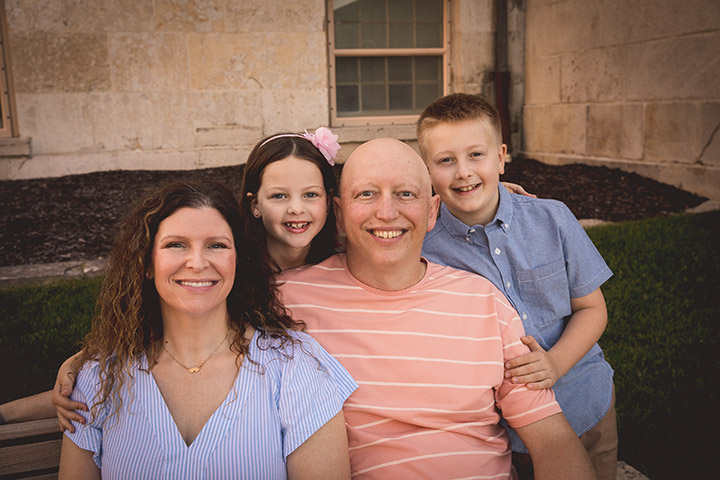
- Diagnosed at 36 years old
- Genetic and biomarker testing shows multiple mutations, including BRCA2, a KRAS variant, and others
- Platinum-based chemotherapy
- Clinical trial including autologous bone marrow stem cell infusion
I was about to start a spring break vacation with my family in March 2021 when I went to the ER with side pain and what I thought was acid reflux.
We were going to leave the next day, driving from our home in Iowa City to the Gulf Coast, but I was so uncomfortable that my wife Brooke insisted I go to the ER. The ER ran a multitude of tests and the only one that came back abnormal indicated I had blood clots in my system. I then had a chest/abdomen/pelvis CT which showed multiple blood clots in my spleen and a mass on the tail of my pancreas. I was transferred to University of Iowa Health Care in Iowa City for treatment of my blood clots and additional testing, but was sent home until I could get an appointment to see a gastrointestinal oncologist. During this time, my wife and I immediately knew the mass was pancreatic cancer because my uncle had been diagnosed with it three years earlier. We knew there was a genetic factor and we were very worried.
I got an appointment with oncologist Dr. Chandrikha Chandrasekharan (now at the Neuroendocrine Tumor Research Foundation) and had a biopsy scheduled. The day before we got the results of the biopsy, we met with my oncologist and surgeon, Dr. James Howe, to come up with a plan so we could prepare for the worst. The biopsy confirmed I had cancer (pancreatic adenocarcinoma) on the tail of my pancreas, but it had not metastasized. We asked our oncologist about genetic testing and she said she was already planning to send me for testing. It took about four weeks until we got the results. It turns out I have a lot of mutations: BRCA2 (an inherited genetic mutation), and several tumor biomarker mutations (KRAS Q61H, MTAP deletion, and CDKN2A/B loss).
Following the Plan. . . We Thought
The plan was to have six rounds of chemo, have surgery, and then finish with six rounds of chemo. I started chemo on April 1st. Prior to my genetic results coming back, my oncologist assumed I was BRCA positive so we moved forward with standard of care chemo, FOLFIRINOX, because it includes oxaliplatin, and BRCA is susceptible to platinum-based drugs. We did three rounds but my platelets became too low for chemo. So, the doctor changed plans and scheduled surgery. I had surgery on June 4th to remove about half of my pancreas, my spleen and my gallbladder—a distal pancreatectomy.
I had a number of hurdles during chemo, such as cold sensitivity, neuropathy, and low white blood cell counts. After nine total rounds of chemo, my liver enzymes became too high and I had to discontinue chemo. My oncologist did a new blood serum assay test (Molecular Residual Disease test) to see if there was any disease in my blood. The test was negative and showed that I was not likely to have an early recurrence. We stopped the chemo with a fair amount of confidence.
The Cancer Comes Back
I had a little more than a year with no evidence of disease but in November 2022 we discovered the cancer had metastasized to my liver. My local oncologist thought it was time to see a physician who saw a high volume of BRCA patients and referred me to Penn Medicine (Philadelphia, Pennsylvania) and Dr. Kim Reiss Binder. While on the East Coast, I saw two more BRCA specialists, and everyone agreed on next steps. I started on chemotherapy again, this time with a combination of gemcitabine and cisplatin. In June 2023, I had stereotactic body radiotherapy (SBRT), which precisely targeted the metastasized tumor on my liver. After good success of the SBRT, I began a maintenance pill called olaparib that would target my BRCA2 mutation. Unfortunately, it didn’t work for me.
In November of 2023, we added another oncologist to our toolbelt; this time a physician named Dr. Ryan Carr from the Mayo Clinic (Rochester, Minnesota), who is closer to us geographically than the East Coast physicians. At this appointment, I had additional small spots show up in my abdominal lymph nodes and a few spots in my lungs. This time, Dr. Carr wanted to try something different, so he started me on gemcitabine and Abraxane. I had a very positive response to this chemotherapy. I did not have a lot of issues with gemcitabine–cisplatin, but gemcitabine–Abraxane caused TAPS (Taxane-induced acute pain syndrome) in my legs that was quite painful.
In June 2024, I was able to participate in the SHARON clinical trial at Memorial Sloan Kettering in New York City. My wife is the one who found out about the trial as she had connected with the wife of another patient through social media and we immediately dialed in. The trial uses a combination of the chemo drugs melphalan (Alkeran) and carmustine (BCNU), vitamin B12b, and vitamin C, followed by an autologous bone marrow stem cell infusion to aid in recovery. This whole treatment is done twice, six weeks apart. I have had issues with nausea and fatigue, but overall I have done very well with this regimen. My wife and I stayed in New York for three months while other family members cared for our children, who are seven and nine years old.
Continuing to Fight
Prior to coming home, I had scheduled scans to track the progress of the trial. Unfortunately, a CT scan showed three tiny, new spots on my liver. It is still too early to know if the trial will provide me any positive effect, but I’m probably going to have to begin additional treatment soon, with my new oncologist Dr. Naomi Fei.
At this time, I feel good and am hopeful for many more years thanks to additional options I have related to my genetic and tumor biomarker mutations! My various treatments have not impacted my overall quality of life because I am fortunate that my quality of life was already really good at the time of my diagnosis in 2021.
As hard as it is to go through life with pancreatic cancer, I want to tell others to have a positive mindset. I try to follow my own words as much as possible, too. I have down days, but I truly believe that keeping a positive mindset and appreciating what you have in life helps your fight. As stated previously, I am married with two kids (ages seven and nine). I don’t take the time I have with them for granted. I have to be here for them, just like they are here for me.
I also recommend connecting with other pancreatic cancer fighters, survivors, and caregivers. This has been extremely helpful in learning that we aren’t alone. There are others who are going through the same trials and tribulations. I am somebody who wants to share my story and experiences to help others who also need it. Connecting with fighters, survivors, and caregivers has been extremely rewarding.
My goal is to continue living my life until the next big treatment comes along. So much has changed in the pancreatic cancer world in the three and a half years since my diagnosis and I truly believe HOPE is on the horizon.


